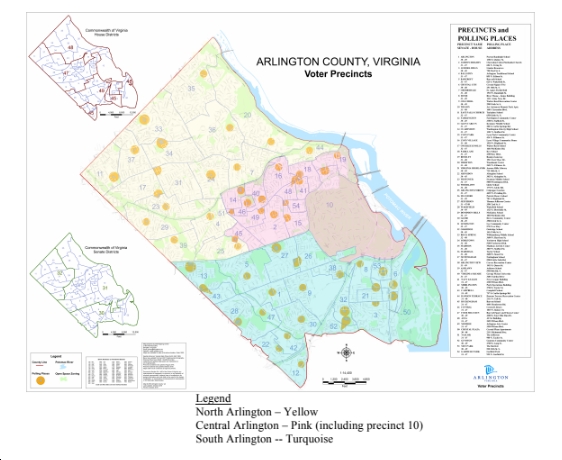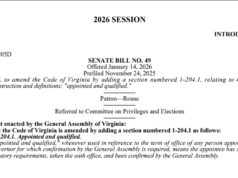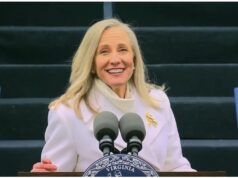 by Steven Krieger, Candidate for Arlington County School Board (steven@stevenforschoolboard.com )
by Steven Krieger, Candidate for Arlington County School Board (steven@stevenforschoolboard.com )
Equity is an important consideration in public policy, particularly in Arlington during this time of change. During this pandemic, we need to be more mindful of how the choices we make impact different communities. Two current members of the School Board in Arlington have decided not to seek reelection. Although school board elections in Virginia are nonpartisan, the Arlington County Democratic Committee traditionally holds a caucus to choose which candidates to endorse. This year, the caucus was initially scheduled to have in-person voting in early May. Due to COVID-19, Arlington County Democratic Committee rightly chose to instead conduct the caucus via mail. Voters could request a ballot online until May 7th and have until May 30th to return ballots.
For our most vulnerable and marginalized students and families, local elections are just as important as national ones. We are in the midst of a global pandemic unlike anything in our lifetime. Our most vulnerable families are suffering to pay their rent and obtain food and it will be a daunting task to support them. Our School Board members will need to ensure that APS is working for all students in an uncertain time to create a truly equitable school system and provide the opportunity for all students to reach their greatness, which is what all our students deserve. This is why it is important that all Arlingtonians, particularly our most vulnerable and marginalized families, are given the easiest opportunity to vote.
Our campaign compared ballot requested voter data* to registered voter data** and the results shows that the process to request a ballot furthered inequities in Arlington:
- North Arlington voters made up 48% of the total ballot requests, even though they make up 31% of registered voters.
- South Arlington voters made up 31% of the total ballot requests, even though they make up 39% of registered voters.
- Central Arlington voters made up 20.3% of the total ballot requests, even though they make up 31% of registered voters.

Although approximately 7,700 people will have the opportunity to vote in this caucus, which crushed the previous turnout record of 4,425 in 2008 where there were six candidates running for two seats, the geographic turnout of Arlington voters in this caucus is another example where our failure to be more mindful created more inequities in our community. Being able to easily access the process necessary to vote in the caucus required privileges that many Arlington residents simply do not have.
Arlington County has grappled with issues of equity since its founding in 1920 and the racial and economic segregation lingers today largely along geographic boundaries between North and South Arlington.
Requesting a ballot required a voter to have access to the internet to visit the Arlington Democrats website and provide name, address, and the option of including an email and phone number. If a voter did not have internet access, a hard copy ballot request form was available, but since all in-person campaign events were canceled, providing hard copy request forms (along with the stamp and envelope) was challenging. This process presented significant equity challenges to disadvantaged citizens including the poor, English language learning voters as well as voters with disabilities.
We should be encouraging as many families as possible in Arlington to participate in the School Board election process. This process should ensure that as many barriers are removed as possible from participation and access to information and opportunity. In the name of equity, all registered voters or some sub-group of registered voters in Arlington could have received ballots by mail (including paid return postage), so more voters had the opportunity to participate in the caucus process. As a community, we need to do better to support the Democratic values of helping those who need it most.
The vote-by-mail election for the School Board caucus should serve as a clear reminder that if we fail, even for a moment, to be intentional in fighting inequities in our community, the most vulnerable members of our community will bear the consequences.
Footnotes
* Our campaign assigned a geographic classification of North, Central, or South to each of the 54 voter precincts in Arlington. Precincts north of Interstate 66 are North. Precincts south of Route 50 are South. Precincts between Route 50 and Interstate 66 are Central, but if any part of the precinct is west of George Mason that entire precinct is North. Over the last few years, many Arlingtonians have designated the nomenclature of “Central Arlington” to the densely populated Ballston-Rosslyn corridor and its surrounding neighborhoods, dominated by high-rises and multi-family dwellings that contain a mix of economic diversity.
** Information on registered voters found here:











